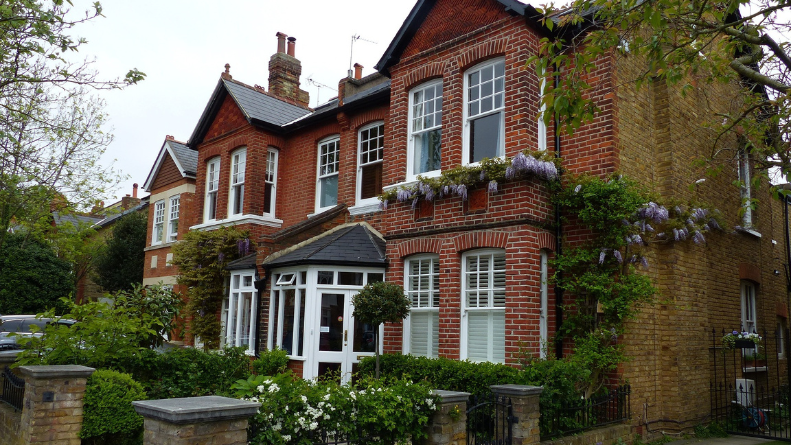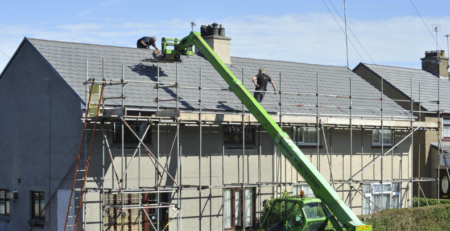Can I Live in My Own Investment Property?
Since life is always throwing unexpected obstacles in our way and circumstances can change quickly, you may require a short-term place to stay at some point. If you own an investment property and it’s empty right now, you might want to use it as a temporary home while you look for a new main place to live.
But can one legally live in an apartment or house purchased for the purpose of a property investment? No, you can’t typically live in your own investment property. That said, let’s break it down to shed some light on why this is the case and look closer at the details.
How do we define an investment property?
First, let’s define “investment property”. Real estate acquired with the expectation of financial gain is referred to as “investment property.” Investing in real estate for the purpose of renting it out to others is a common way to create passive income. In addition to monthly rental income, the value of the property could rise, and so investors can also make money from capital appreciation.
Put another way, if you’re interested in real estate and willing to make purchases for that purpose, you are an investor.
Am I allowed to live in my property investment?
To put it simply, if you got a “buy-to-let” mortgage to pay for the purchase of an investment property, you cannot live there yourself.
The reason being, doing so would be against the conditions of your buy-to-let mortgage, which is tailored toward those who want to rent out their investment property.

Because the Financial Conduct Authority treats buy-to-let mortgages differently than traditional mortgages, your mortgage lender will insist that you exclusively rent out your investment property.
Obviously, you won’t be able to generate the rental revenue required to make your mortgage payments if your property is vacant. Your investment property mortgage provider will be worried if you don’t have enough rental income to pay the loan payments and, as a result, might not be able to pay back the loan.
Having said this, although you can’t stay in a rental home if you used a buy-to-let mortgage, you can do so if you didn’t use one but instead paid for the property with an outright cash purchase.
What if someone moved into an investment property that was bought with a buy-to-let mortgage?
It might be tempting to move into your investment property. However, there are big problems with living in rental houses and real estate bought with a buy-to-let mortgage:
- You run the risk of being included in the “Rogue Landlords Database”
- If found guilty, you might go to jail for violating the Fraud Act of 2006.
- Mortgage lenders sometimes demand that the whole loan balance be paid at once.
Investors who want to live in their investment properties might want to switch from a buy-to-let mortgage to a regular mortgage to avoid this bad situation from arising.
This effectively means that you need to contact your lender to tell them of your intentions so they can discuss it with you and, if necessary, make the requisite arrangements. But keep in mind, this isn’t always achievable because not all mortgage companies provide buy-to-let loans in addition to conventional home loans.
If you are not sure of what to do, get expert advice. Mortgage types, insurance, interest rates, and other financial factors are just a few examples of when it’s best to get professional advice about your investment.
How soon can you live in a rental property after purchasing it?
As noted above, those who use a buy-to-let mortgage to invest in property are not permitted to reside there. A buy-to-let mortgage prevents you from moving in until you’ve paid it off, but when that time period is over, you’re free to use the property as you choose.
The typical mortgage term for an investment property is 25 years, meaning you would have to wait until then to move in.
What about if a family member wants to live in your investment property?
This is a question that comes up quite frequently.
Your investment property is allowed to be rented by relatives. But there are regulations and tax ramifications you must be aware of, in particular with regard to the interest rates on your buy-to-let mortgage.
However, some lenders that provide buy-to-let mortgages may not let relatives or friends live in a property if they consider it too risky. You will have to speak with your lender to find out exactly what their policy is.
You may be wondering why this is the case with some lenders. This is because you might be less strict with a family member who rents from you, letting them save money by paying a lower rent or not kicking them out for breaking the rules.
To make sure that you are getting sound investment advice, always check with a trusted advisor or your lender to find out if renting to relatives is permitted.
Finally, don’t be tempted to try and live in your own investment property because you think the lender won’t find out, because the chances are high that they will. And when they do, the consequences can be very severe, including a possible custodial sentence.
ARE YOU READY TO START INVESTING?
Subscribe to our mailing list now for exclusive deals, investment guides and the latest information from the property market.






